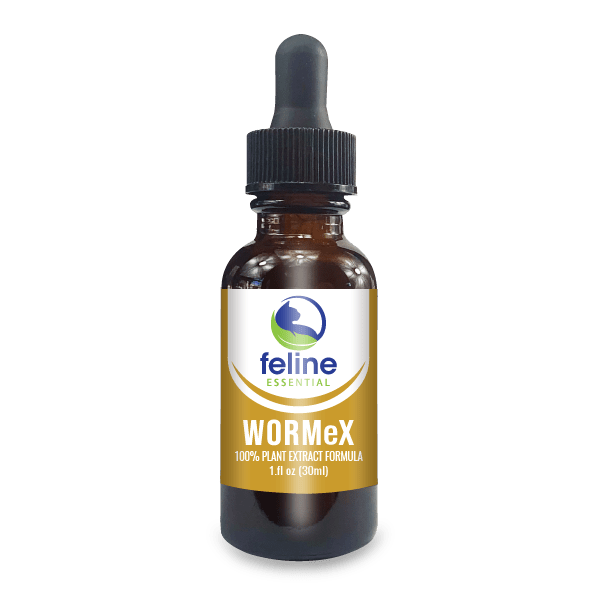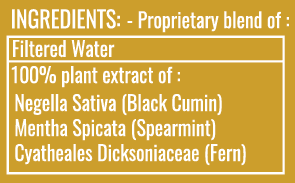Symptoms, Causes & Natural Remedies
Giardia is a common parasite that can affect cats. It is caused by a microscopic protozoan called Giardia lamblia, which lives in the intestines of infected cats. Giardia can cause a range of symptoms, including diarrhea, vomiting, and weight loss, and it can be challenging to diagnose and treat.
In this guide, we will provide an overview of Giardia in cats, including its symptoms, causes, and natural treatments you can use to help your kitty.
Symptoms of Giardia in Cats:
The symptoms of Giardia in cats can vary from mild to severe, and some cats may appear asymptomatic. The most common symptoms include:
- Diarrhea: This is the most common symptom of Giardia in cats. This can be acute, chronic or intermittent. The diarrhea may be watery, mushy, or contain mucous, and it may be accompanied by a foul odor. If left undiagnosed, the cat may experience a horrible case of bloody, dehydrating diarrhea.
- Malabsorption: A Giardia infection interferes with the digestion and absorption of nutrients in the food, which can cause malabsorption in cats.
- Vomiting: Some cats with Giardia may vomit, especially if they have severe diarrhea.
- Weight Loss: Giardia can cause weight loss in cats, especially if they have chronic diarrhea. In chronic cases of Giardia, cats can continue eating but get thinner.
- Lethargy: Cats with Giardia may appear lethargic or weak.
- Dehydration: Chronic diarrhea can lead to dehydration, which can be life-threatening if not treated promptly.
Causes of Giardia in Cats:
Giardia is spread through the feces of infected animals, including cats. The most common way cats become infected with Giardia is by ingesting contaminated water or food. It can also be spread through contact with contaminated objects, such as litter boxes or food bowls. Giardia thrives in cool, moist environments.
Cats that live in multi-cat households or in close quarters with other animals are at higher risk of contracting Giardia. Kittens, elderly cats, and cats with weakened immune systems are also more susceptible to infection.
Natural Treatments for Giardia in Cats:
There are several natural treatments that can help manage the symptoms of Giardia in cats. Natural treatments are not always guaranteed to eliminate the Giardia parasite, and it’s important to do repeated testing after any treatment to insure we are resolving the issue.
- Herbal Remedies: Certain herbs, such as slippery elm, can help soothe the digestive tract and reduce inflammation. Other herbs, such as goldenseal and oregano, have antimicrobial properties and can help fight off infections. (See below for more herbal recommendations)
- Coconut Oil: Coconut oil has antibacterial and anti-fungal properties, and it can help improve your cat’s digestion. You can add a 1/2 tsp of coconut oil to your cat’s food or give it to them as a treat.
- Homeopathic Remedies: Homeopathic remedies, such as arsenicum album and nux vomica, can help relieve diarrhea and vomiting in cats. We recommend using these remedies under the guidance of a qualified homeopath.
- Pumpkin: Adding a small amount of canned pure pumpkin to your cat’s food can help firm up their stool and relieve diarrhea.
Dr Karen Becker’s Recommendation for Giardia
“I’ve tried many natural protocols to eliminate giardia without the use of drugs, and I’ve had some success using combinations of antiparasite herbs such as berberine (Oregon grape root), ginger, cinnamon, black walnut, olive leaf, cat’s claw, and Pau d’arco. I’ve found these substances do a good job reducing the parasitic load in dogs and cats, but they don’t always resolve the infection.
If you choose to treat your pet all naturally, I recommend that you extend your intermittent stool checks to 9 months because I most commonly see a recurrence of cysts between the 6 and 9-month mark after an all-natural giardia treatment protocol.
Once your pet has been fully cleared of the parasite, I strongly recommend partnering with a functional medicine veterinarian who can provide an intestinal recuperation plan.”
Conclusion:
Giardia in cats can be a challenging condition to manage, but with proper veterinary care and natural treatments, most cats can recover. If you suspect your cat has Giardia, it’s essential to see your veterinarian right away. Your integrative veterinarian can perform diagnostic tests, provide treatment, and help you develop a plan to manage your cat’s symptoms and prevent future infections. Additionally, use natural treatments such as probiotics to support your kitty’s gut health.


